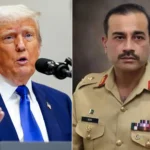Introduction
As tensions escalated between nuclear-armed neighbors India and Pakistan, a critical intervention by the United States may have helped avoid a devastating conflict. According to administration sources, Vice President JD Vance personally called Indian Prime Minister Narendra Modi to encourage direct talks with Pakistan, citing alarming intelligence that suggested imminent escalation. The diplomatic outreach, led by top US officials including Secretary of State Marco Rubio and White House Chief of Staff Susie Wiles, came amid rising cross-border violence in the Kashmir region.
Behind the Scenes: The US Steps In
On Friday morning, the Trump administration received sensitive intelligence that prompted immediate concern. While specifics remain classified, sources indicate the urgency of the intelligence spurred the US to act swiftly. Vice President Vance briefed President Trump before making the high-level call to Modi around noon ET.

The message was clear: the United States viewed the risk of escalation as dangerously high and urged India to engage directly with Pakistan to defuse tensions. According to officials, Vance also presented a possible de-escalation path that the US believed Pakistan would accept.
India-Pakistan Conflict Reaches Boiling Point
The call came as violence between the two nations intensified. In the past week, both countries exchanged drone and missile strikes following India’s retaliatory action on alleged terrorist infrastructure inside Pakistan. These strikes came in response to a deadly attack in Indian-administered Kashmir that left dozens dead.
Missile defense systems lit up skies over Jammu and Kashmir, with residents reporting widespread destruction and continued military operations even after the ceasefire was announced.
Diplomatic Momentum Builds Overnight
Following Vance’s call, Secretary of State Rubio and other US diplomats worked throughout the night contacting Indian and Pakistani counterparts. While Rubio had already been in communication earlier in the week, Friday’s developments catalyzed a coordinated diplomatic push.
A senior administration official said, “The two sides weren’t talking. Our role was to help bridge that communication gap. Once we relayed mutual off-ramps, the two countries began working toward a solution.”
Ceasefire Declared – But Will It Hold?
A “full and immediate ceasefire” was announced by President Trump on social media Saturday morning, with Rubio echoing the announcement minutes later. Celebrations erupted in cities like Hyderabad, Pakistan, though some blasts were still heard hours after the agreement, casting doubts on the immediate implementation.
While Pakistan publicly praised the US for its mediating role, India’s official statements notably omitted any mention of American involvement. Foreign Secretary Vikram Misri emphasized that the agreement was reached “directly” between India and Pakistan.
Contrasting Narratives and Regional Politics
The differing responses underscore the contrasting views on international mediation. India, positioning itself as a rising global power, historically resists foreign intervention in regional matters. In contrast, Pakistan has welcomed third-party diplomacy, particularly from the US and China, to counterbalance India’s influence.
Despite earlier downplaying US involvement in the conflict, Vance’s behind-the-scenes efforts appear pivotal in de-escalating the situation, reflecting a nuanced and strategic US foreign policy stance in South Asia.
Conclusion
The US may not have drafted the ceasefire agreement, but its role as a diplomatic catalyst is evident. Vance’s personal diplomacy, backed by Rubio and the Trump administration, was instrumental in reinitiating talks between India and Pakistan at a crucial moment. Whether this ceasefire holds remains to be seen, but for now, a potentially devastating conflict has been paused—thanks in part to timely US intervention.
For more on past India-Pakistan tensions and US diplomatic history in South Asia, check out our in-depth India-Pakistan Conflict Timeline.
Sources: Politico, NewsNation









